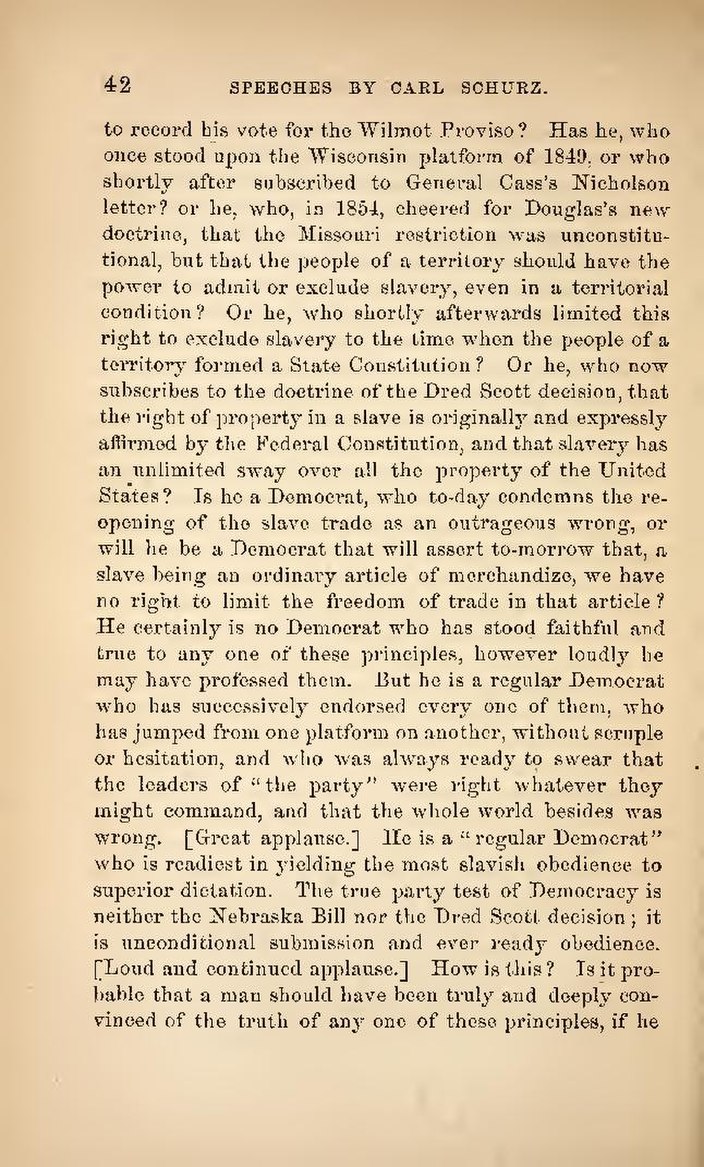to record his vote for the Wilmot Proviso? Has he, who once stood upon the Wisconsin platform of 1849, or who shortly after subscribed to General Cass's Nicholson letter? or he, who, in 1854, cheered for Douglas's new doctrine, that the Missouri restriction was unconstitutional, but that the people of a territory should have the power to admit or exclude slavery, even in a territorial condition? Or he, who shortly afterwards limited this right to exclude slavery to the time when the people of a territory formed a State Constitution? Or he, who now subscribes to the doctrine of the Dred Scott decision, that the right of property in a slave is originally and expressly affirmed by the Federal Constitution, and that slavery has an unlimited sway over all the property of the United States? Is he a Democrat, who to-day condemns the re-opening of the slave trade as an outrageous wrong, or will he be a Democrat that will assert to-morrow that, a slave being an ordinary article of merchandize, we have no right to limit the freedom of trade in that article? He certainly is no Democrat who has stood faithful and true to any one of these principles, however loudly he may have professed them. But he is a regular Democrat who has successively endorsed every one of them, who has jumped from one platform on another, without scruple or hesitation, and who was always ready to swear that the leaders of “the party” were right whatever they might command, and that the whole world besides was wrong. [Great applause.] He is a “regular Democrat” who is readiest in yielding the most slavish obedience to superior dictation. The true party test of Democracy is neither the Nebraska Bill nor the Dred Scott decision; it is unconditional submission and every ready obedience. [Loud and continued applause.] How is this? It is probable that a man should have been truly and deeply convinced of the truth of any one of these principles, if he
